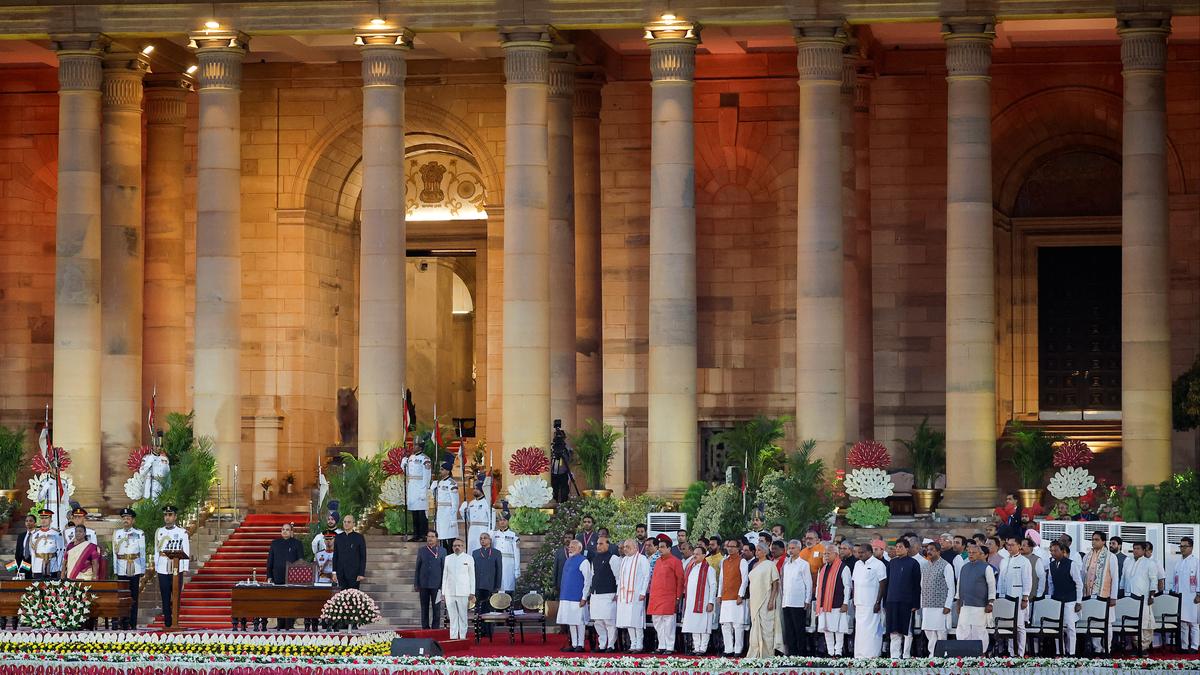Reimagining Indian federalism The return of coalition governance to New Delhi offers hope


President Droupadi Murmu, Prime Minister Narendra Modi and to be sworn-in Ministers stand for the national anthem during the swearing-in ceremony at the Rashtrapathi Bhavan on June 9, 2024. | Photo Credit: Reuters
On June 4, 2024, the Bharatiya Janata Party (BJP) tripped up short of the majority mark in the Lok Sabha, compelling it to hobble towards power by leaning heavily on its partners in the National Democratic Alliance, all of which are regional parties. Aside from placing fetters on the BJP’s overweening arrogance and decelerating our descent into majoritarian autocracy, the return to New Delhi of coalition governance offers another hope: that of revitalising India’s beleaguered federal structure, which has sustained countless death blows over the past decade.
As I argued in the Lok Sabha last year — while opposing the Government of National Capital Territory of Delhi (Amendment) Act, 2023 — what we have repeatedly seen since 2014 is an insidious, inexorable effort to curtail the autonomy of our States. Despite Prime Minister Narendra Modi’s rhetoric of cooperative federalism, all we have seen is the rise of a coercive and combative brand of federalism that seeks to centralise power at the expense of the States.
Recent Posts
Stampede during festival at Goa temple leaves at least 6 dead, several injured
Goa Lairai Devi temple stampede: Among the injured, at least 10 people remain in critical condition…
Heavy rain, thunderstorms in Delhi bring respite from heat; IMD sounds alert, flight ops hit
Delhi NCR Weather Update | IMD Red Alert: The weather department had said that a fresh…
At least 14 dead in Kolkata hotel fire, SIT formed to probe cause
Kolkata Hotel Fire News: The fire broke out around 7:30 pm at the Rituraj Hotel,…
Pahalgam attack fallout: Pakistan violates ceasefire; India releases names of 14 ‘active terrorists’ in Kashmir | Full list
Indian soldiers inspect the site in the aftermath of an attack in Pahalgam, about 90kms (55…
Pahalgam guide became guardian angel for Chhattisgarh BJP worker: ‘Hugged the children, saved their lives’
When the attack took place on Tuesday, Agrawal (35) said other tourists pulled him to safety,…
Two terrorists killed in encounter in Baramulla’s Uri day after Pahalgam attack
Indian Army said the encounter broke out on Wednesday with approximately two-three terrorists attempting to infiltrate…